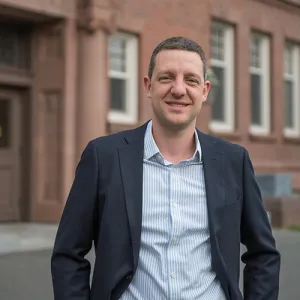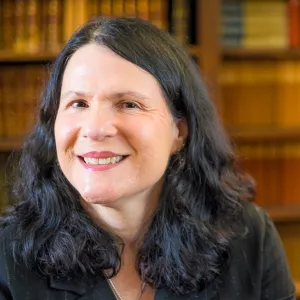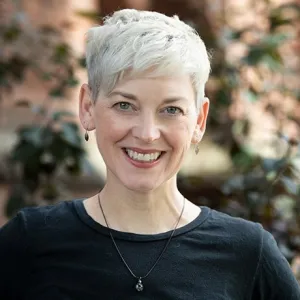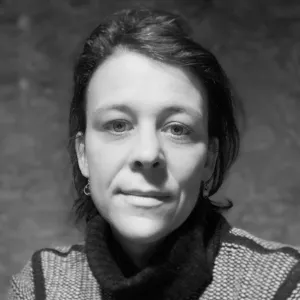Possible Futures: AI and Human Experience
Published September 14, 2023
Kahn Institute Long-Term Project, Spring 2025
Project Description
The proliferation of AI is tied to an unprecedented reshaping of the human experience throughout society—from politics, commerce, law, and education to healthcare and beyond. Interpersonal relationships and our very self-understanding are implicated, too. Today, polarizing views of AI’s contributions to this reshaping abound. At the utopian end of the spectrum, an increasing number of people welcome the prospect of its liberating humanity from restrictions heretofore seen as built into the existence of our species. Meanwhile, those with a more dystopian view worry that AI’s proliferation could subvert human agency and render humans obsolete. This Kahn project aims to move the discourse around AI beyond this unhelpful polarization.
Attaining this goal necessitates reflective engagement and collaboration among those in disciplines across the humanities, social sciences, and natural sciences. Despite the urgency of this need, thus far, consideration of the role and significance of AI remains lodged within particular areas of knowledge, such as computing, medicine, sociology, and philosophy. Where explorations span multiple fields, the range of participating disciplines has tended to be restricted. What’s required, today, is a careful exploration and assessment of AI across a far wider range of areas of expertise. An aim of this Kahn project is to arrive at a common set of competencies and a common language that would allow us to discuss AI-related challenges and opportunities. Working together, we will identify ethical and societal challenges and opportunities relating to the rapid proliferation of AI in human life.
Some of the potential topics and questions we might explore include:
- How does the mounting presence of AI produce shifts, often tacitly, in the conceptualization of autonomy, agency, and accountability? What implications arise for individual and communal flourishing?
- Biased training data lead to biased AI systems, with obvious negative (e.g., racist, sexist) impacts involving law enforcement, the vetting of job candidates, decisions on loan applications, and so on. This effect can also be compounded by biases of those who design algorithms. Deciding what counts as “good” and ethical training data for AI necessitates reflection on what kind of society we want to create. How do we translate the fruits of this deliberation into the production of “good” training data, and how do we obtain that data?
- How might the proliferation of AI in the realms of health and medicine affect not only healthcare across the life cycle but personal responsibility for health, as monitored, for instance, via iPhone apps? How could it influence, for better and worse, the potential and lives of older persons, given the rapidly aging populations of many countries?
- How might reliance on technologies such as ChatGPT and GPT-4 dispose us to favor certain aims over others and change our view of how intellectual work is best carried out? Are such technologies likely to increase freedom and creativity or decrease them?
- Does AI promise to deliver on humans’ longstanding yearning for immortality, as some maintain, through “uploading” of the entire contents of the human brain to computer software? Apart from questions of technical feasibility, what view of personal and human identity does this position assume, and what are likely implications of such a practice?
This Kahn project provides us with an opportunity to understand and address such questions in a broad interdisciplinary milieu—one that spans and integrates contributions of the natural sciences, social sciences, and humanities.
Organizing Fellows
Luca Capogna, Mathematics
Susan Levin, Philosophy
















